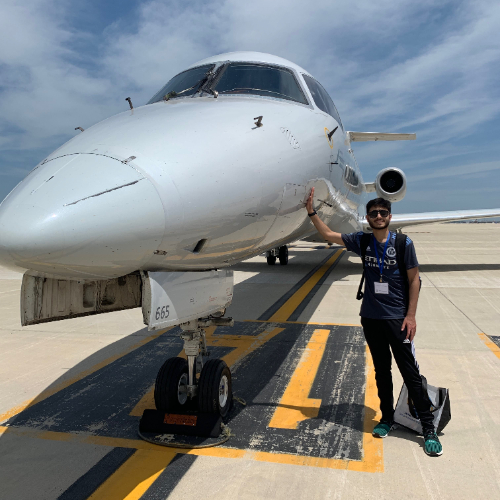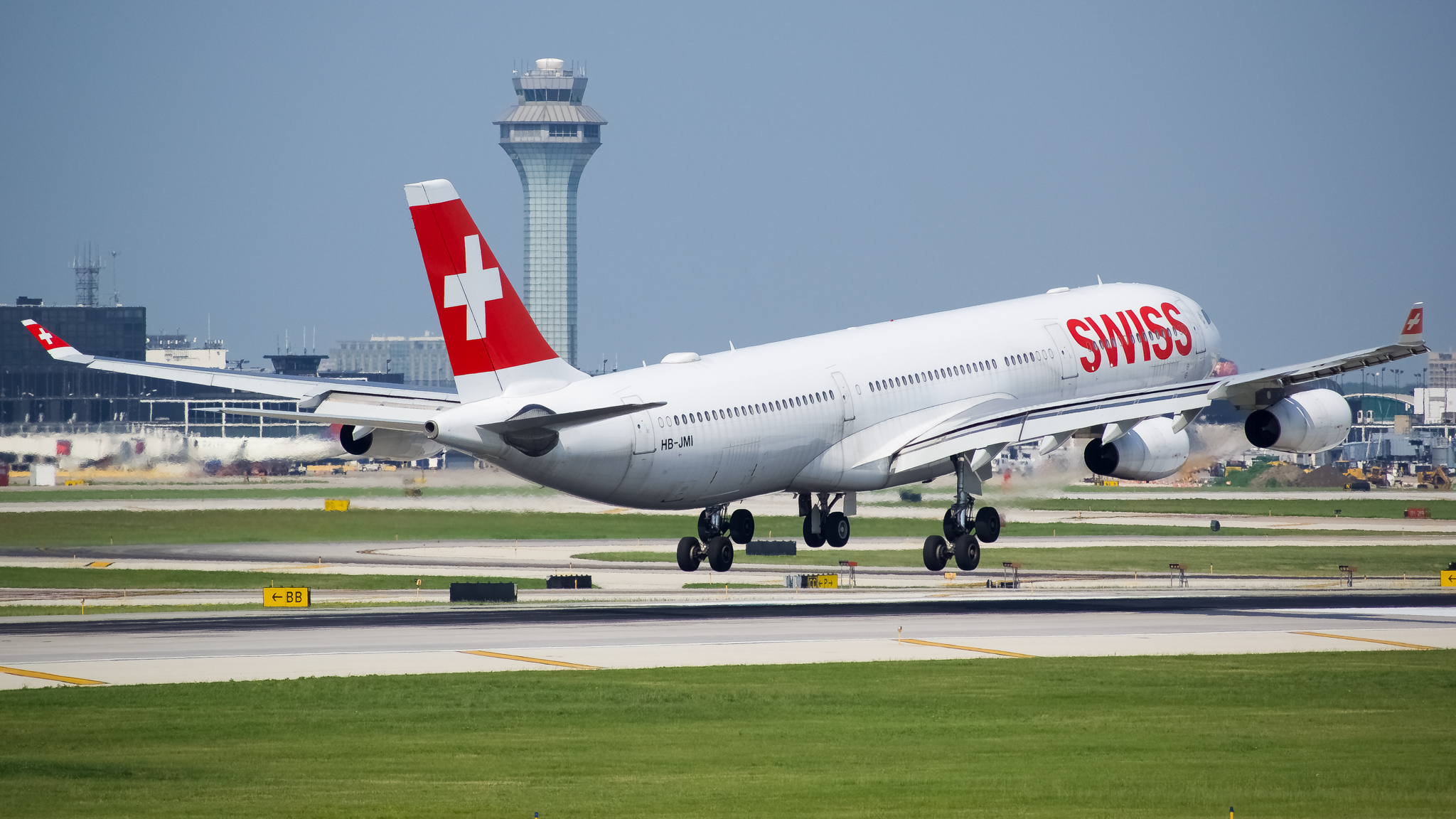
Did you know sharks can fly? Okay, that question was misleading. Sharks definitely cannot fly; however, one airline has adopted a special "shark skin" technology for some of its aircraft, which is said to have immense benefits.
That airline is Swiss International Airlines, also known as SWISS. The carrier has become the first airline in the world to deploy this innovative new technology on its aircraft.
Shark Skin on Planes?
Let us first address the elephant in the room. This new technology is called "AeroSHARK," and despite its name having "shark" in it, the material is not made from actual sharks.
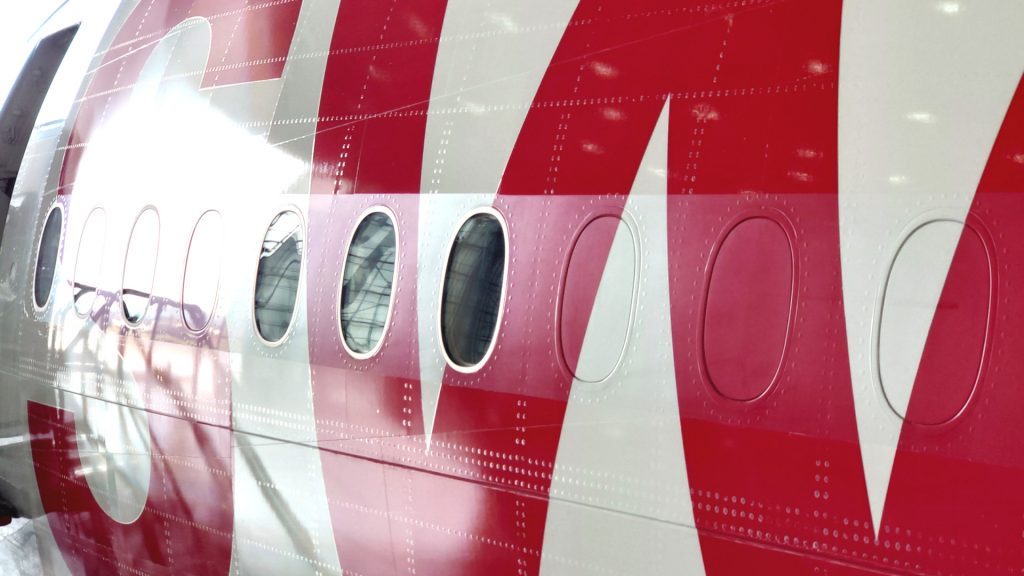
The AeroSHARK material is a transparent film coating applied across the aircraft's fuselage and engine nacelles. The film features millions of riblets, which are small protrusions just 50 micrometers high. These riblets replicate the highly hydrodynamic, flow-optimizing skin of sharks and reduce aerodynamic drag.
Following years of research and development, the AeroSHARK film was co-developed by Lufthansa Technik and BASF, a chemicals and coatings manufacturer.
SWISS began implementing this new technology in 2022 across its 12-strong fleet of Boeing 777-300ERs. The first AeroSHARK-equipped 777 made its first voyage on October 14th, 2022, from Zurich to Miami.

Amazing Savings
Thanks to reduced drag caused by AeroSHARK, SWISS will reduce inflight fuel consumption and carbon dioxide emissions. The carrier also anticipates that the grooved skin will allow more smoother airflow across the fuselage, enabling a much smoother flying experience.
According to SWISS, 950 square meters (~10,226 square feet) of AeroSHARK film is applied to each 777. From this application, the carrier expects fuel savings of more than 1.1%. That seems small, but any fuel savings that an airline can grasp are significant.
In the last year, SWISS has saved more than 2,000 tons of kerosene thanks to AeroSHARK. Astonishingly, this is even though not all of its 777-300ERs had received the new skin by then. Now that the entire 777 fleet has AeroSHARK, SWISS' fuel savings will skyrocket.
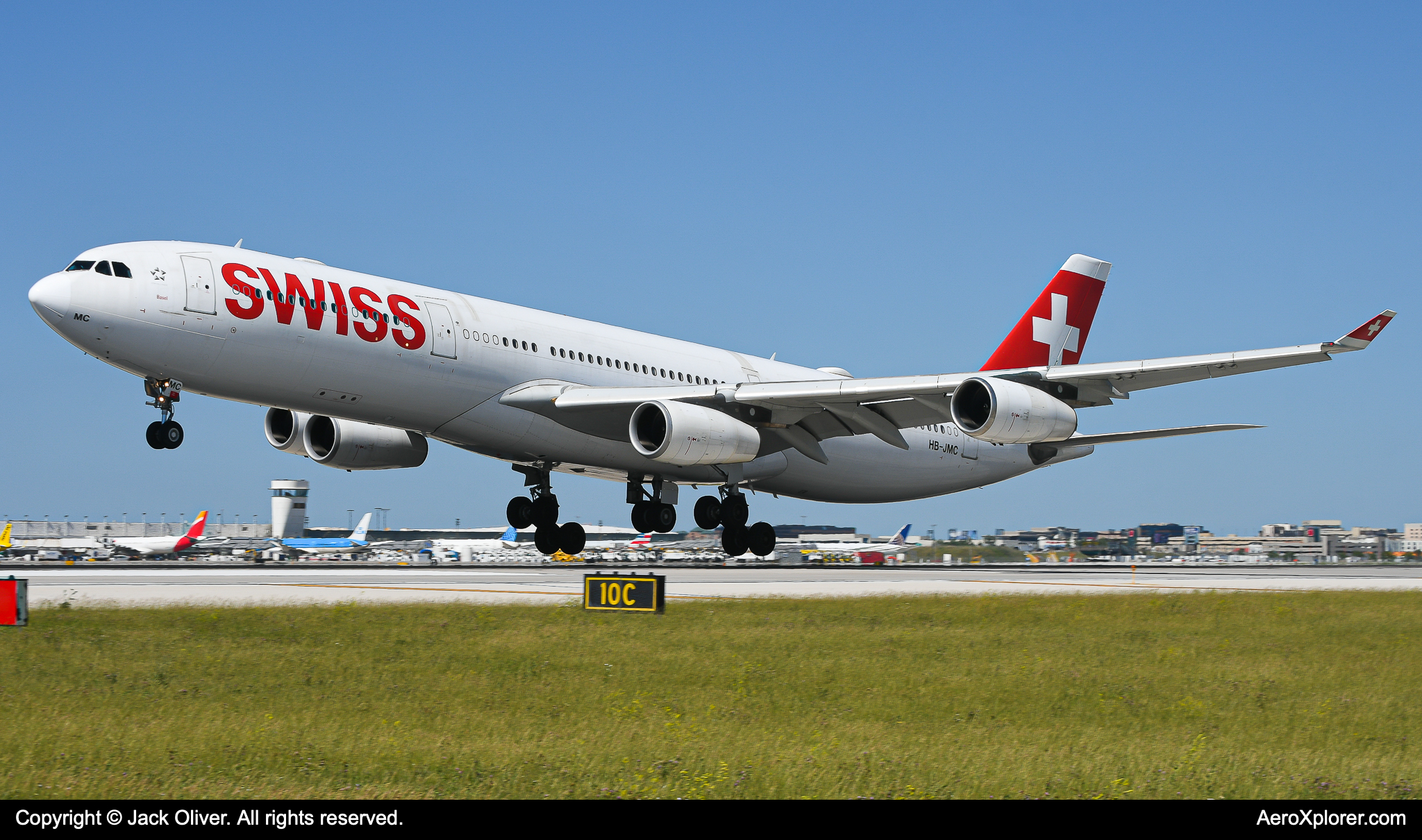
Specifically, SWISS expects to reduce its annual fuel consumption by over 4,800 tons. The total annual carbon dioxide emissions from its 777s are expected to decrease by up to 15,200 tons - the amount emitted by around 87 flights from Zurich to Mumbai.
As of May 2024, all of SWISS' Boeing 777-300ERs have received the new AeroSHARK coating. The final aircraft to receive the latest skin was HB-JNF, which spent over a month in Hong Kong. HB-JNF recently made its maiden flight with the newest skin, which, coincidentally, was also from Zurich to Miami.
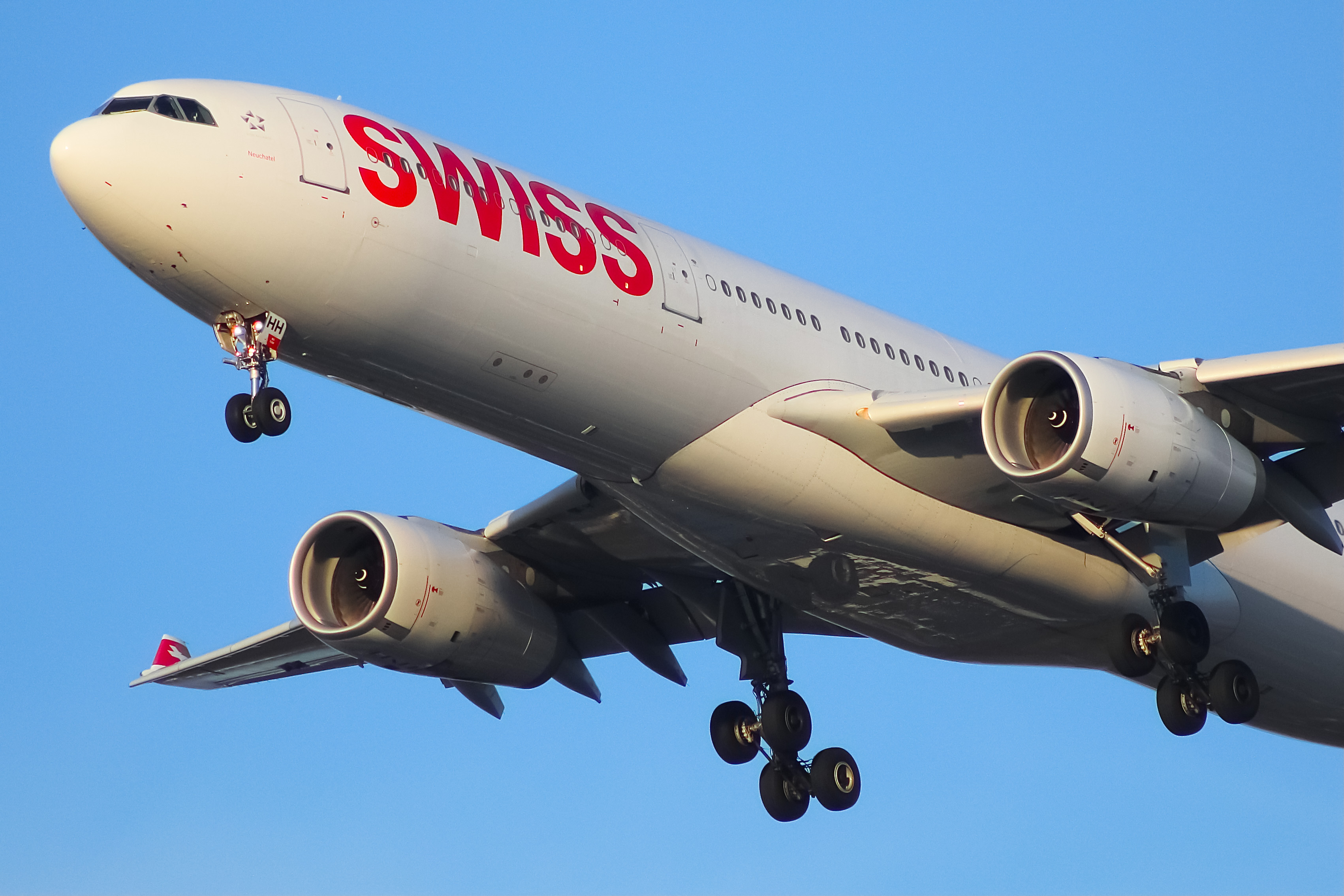
SWISS's Head of Technical Fleet Management, Claus Bauer, expressed his satisfaction with AeroSHARK:
"We are very pleased with the results that we have achieved with AeroSHARK to date. We're proud, too, to be the first airline in the world to have equipped an entire aircraft fleet with this innovative technology. Each aircraft takes about a week to have its AeroSHARK film applied, which requires high-precision artistry from our personnel."
"I am delighted that our commitment to this technology is delivering such positive results and is enabling us at SWISS to take a further substantial step in making our flight operations more sustainable."
With the 777 successfully fitted with AeroSHARK, SWISS is examining other aircraft types within its fleet to apply this new technology. According to the carrier, its Airbus A330s and possibly A340s are next in line to receive the skin. The A330s should begin entering the retrofits within the next 18 months.
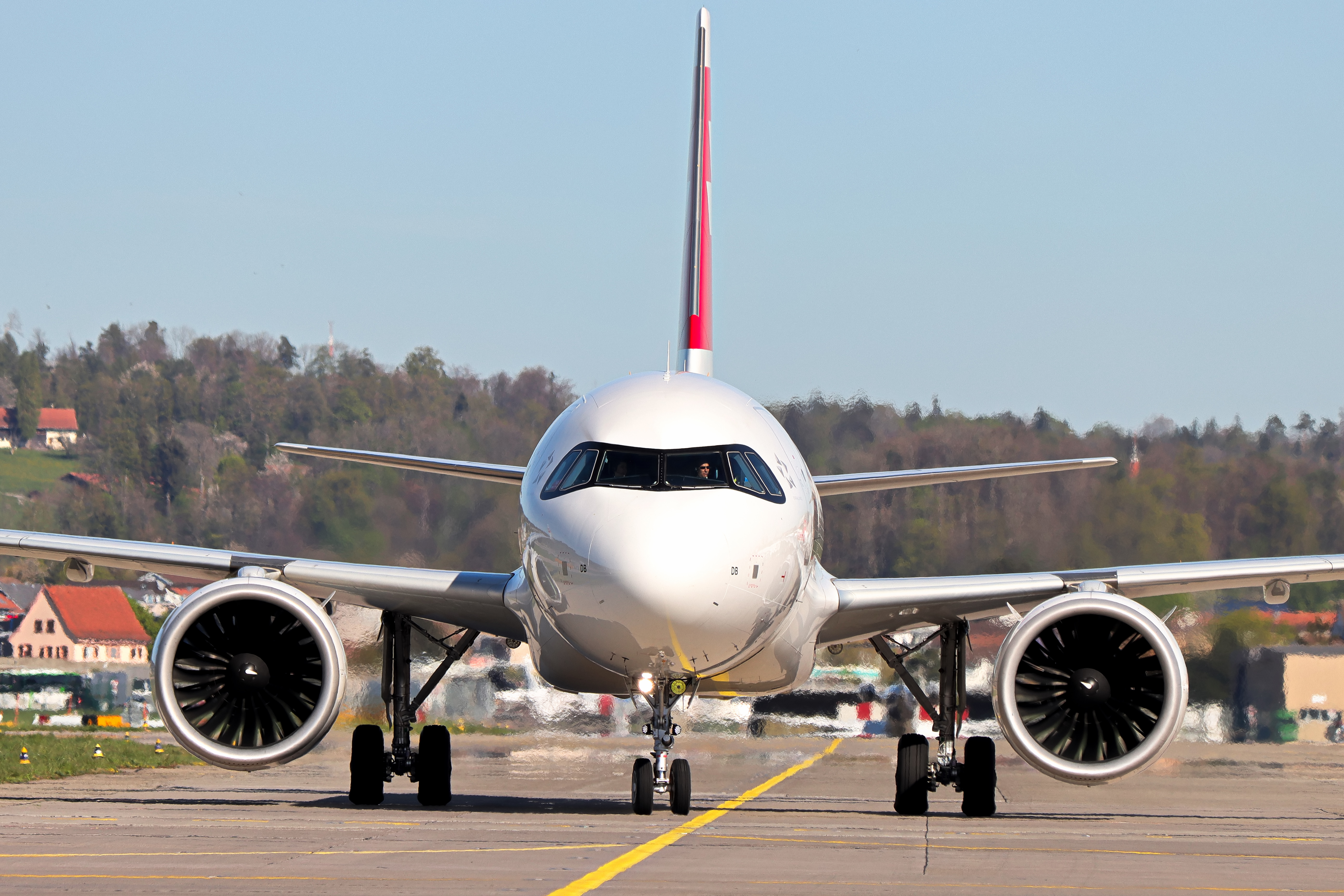
SWISS has four A340-300s remaining in its fleet, which will eventually be replaced by the Airbus A350-900 when they start arriving in the second quarter of 2025. Still, the carrier plans to continue operating the A340s as a means of "additional capacity" once the A330s begin going offline to receive the new skin.
SWISS's choice to apply the new skin to its widebodies first makes a lot of sense. This is because widebody aircraft fly longer flights on average, meaning they use more fuel. By ensuring that the widebodies receive AeroSHARK first, SWISS can reduce its fuel costs from the very start.
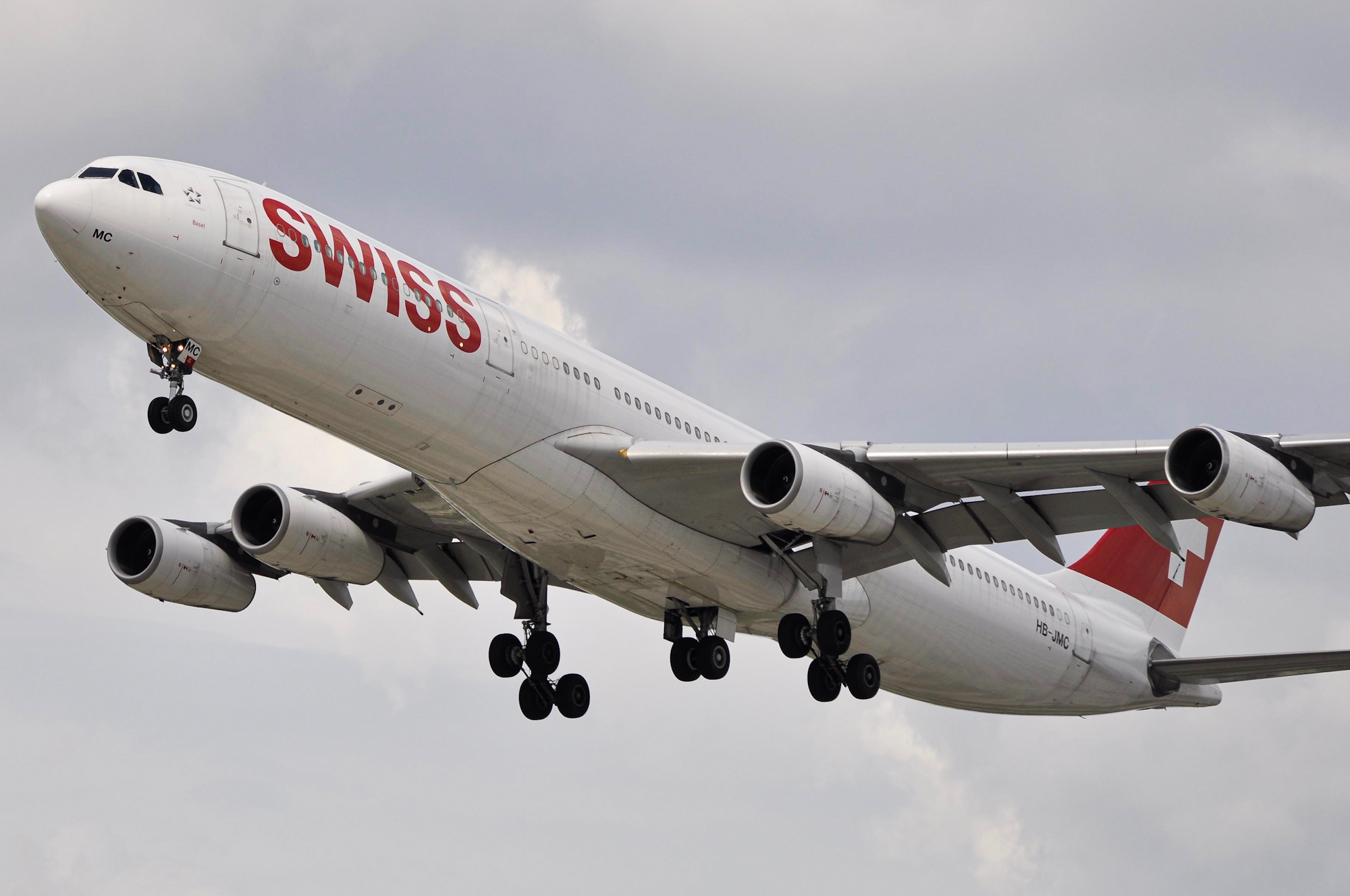
Once the widebody fleet is completely fitted with AeroSHARK, SWISS will eventually look to apply this new skin to its medium and short-haul fleet as well.
AeroSHARK is part of SWISS' commitment to sustainability. The carrier aims to halve its net CO2 emissions by 2030 compared to 2019 and become carbon-neutral by 2050.
Comments (0)
Add Your Comment
SHARE
TAGS
NEWS swiss shark skinaerosharkswiss 777 shark skinshark skin planesswissswiss 777-300erboeingswitzerlandRECENTLY PUBLISHED
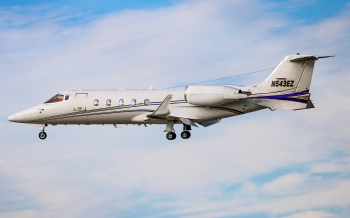 Learjet Owned By Vince Neil Crashes Into Gulfstream Jet, 1 Fatality Confirmed
On February 10th, around 14:30 local time, a Learjet private jet aircraft crashed into another private jet after landing at Scottsdale Airport (SCF) in Arizona.
NEWS
READ MORE »
Learjet Owned By Vince Neil Crashes Into Gulfstream Jet, 1 Fatality Confirmed
On February 10th, around 14:30 local time, a Learjet private jet aircraft crashed into another private jet after landing at Scottsdale Airport (SCF) in Arizona.
NEWS
READ MORE »
 Seattle Plane Strike 2025: Japan Airlines and Delta Collision Raises Safety Concerns
Seattle-Tacoma International Airport saw a concerning incident on Wednesday morning when a Japan Airlines (JAL) plane clipped a parked Delta Air Lines jet while taxiing. Thankfully, no one was injured, but passengers described the collision as a frightening experience.
NEWS
READ MORE »
Seattle Plane Strike 2025: Japan Airlines and Delta Collision Raises Safety Concerns
Seattle-Tacoma International Airport saw a concerning incident on Wednesday morning when a Japan Airlines (JAL) plane clipped a parked Delta Air Lines jet while taxiing. Thankfully, no one was injured, but passengers described the collision as a frightening experience.
NEWS
READ MORE »
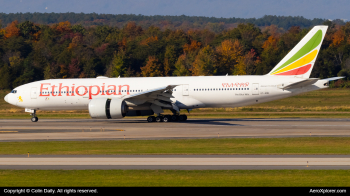 Ethiopian Airlines Expands Cargo Fleet with New Boeing 777 Freighter
Ethiopian Airlines has expanded its cargo fleet with a brand-new Boeing 777 Freighter, registered as ET-BAB (MSN 68140). The aircraft was delivered directly from Boeing’s factory in Everett, Washington, USA, and landed at Addis Ababa Bole International Airport at 3:41 PM (GMT+3) on Wednesday, January 22, 2025.
NEWS
READ MORE »
Ethiopian Airlines Expands Cargo Fleet with New Boeing 777 Freighter
Ethiopian Airlines has expanded its cargo fleet with a brand-new Boeing 777 Freighter, registered as ET-BAB (MSN 68140). The aircraft was delivered directly from Boeing’s factory in Everett, Washington, USA, and landed at Addis Ababa Bole International Airport at 3:41 PM (GMT+3) on Wednesday, January 22, 2025.
NEWS
READ MORE »




